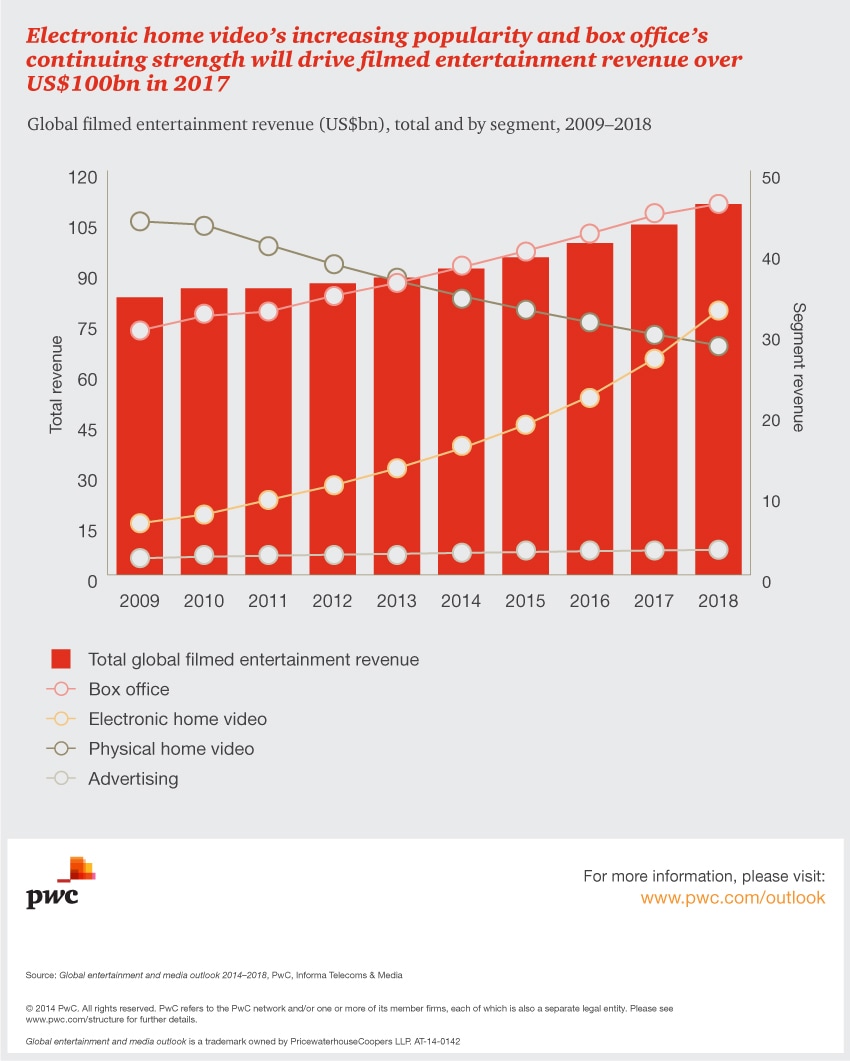Global videogame market on track to be worth as much as the music and film industry
Hi
The global videogame market is on track to be worth as much as the music and film industry combined. The games industry is worth $93 Billion, the music industry is worth $15bn, and the film industry is worth $88.3bn worldwide. (Sources below)
Sources - Gartner Says Worldwide Video Game Market to Total $93 Billion in 2013 - http://www.gartner.com/newsroom/id/2614915
Film industry worth $88.3bn http://www.pwc.com/gx/en/global-entertainment-media-outlook/segment-insights/filmed-entertainment.jhtml

The global videogame market is on track to be worth as much as the music and film industry combined. The games industry is worth $93 Billion, the music industry is worth $15bn, and the film industry is worth $88.3bn worldwide. (Sources below)
Sources - Gartner Says Worldwide Video Game Market to Total $93 Billion in 2013 - http://www.gartner.com/newsroom/id/2614915
Film industry worth $88.3bn http://www.pwc.com/gx/en/global-entertainment-media-outlook/segment-insights/filmed-entertainment.jhtml


Replies
layoffs or not, thats pretty awesome
The problem is less greed and more a corporate model that just plain doesn't work. When you have shareholders, those shareholders expect their share to continually grow in value, which means you need to generate increasing profit year-on-year. This model doesn't seem to accept that there may well be a limit to how large a company can realistically get within a given industry before it is no longer able to continually grow.
A company that stops growing in a shareholder's view no longer has value, because they are no longer seeing a return on their investment. It doesn't matter that said company may safely employ tens of thousands of people and continually turn out quality products whilst making a modest profit (which IMHO is an ideal scenario).
Once a company starts reaching this point, it's only option to increase year-on-year profit when it cannot increase revenue, is to reduce it's operating costs. This is where bullshit like the hire-fire contractor cycles and/or increasingly narrowed schedules and such come in - as a result quality starts to suffer. Alternatively, the company is forced to take big risks in the hope of a large return - and that's when you see companies crumble almost overnight (THQ) when those taken risks fail.
the PDF link is broken in the article, here's the correct one: Video Games in the 21st Century: The 2014 Report
Care to back up that statement?
the movie industrys largest studios have managed to stay in business for decades with sort of consistent profit margains around 10%, and if the struggle for star actor payments wasn't that tough, they could probably double that.
the movie industry can afford to pay single persons more then 10k dollars per hour, while also paying rediculous expenses that would be considered hugely ineffective in any other industry.
while the videogame market is relatively open to everyone(atleast on pc), the moviemarket is restricted by the larger studios that have managed to shut out everyone else from their markets so the only struggle they face is outplaying each other.
they know the size of their market and don't realy have any need to expand it, while most gamestudios struggle to break even and one bomb of a large product would instantly end their existance. (imagine Ubisoft selling only 100k units of the latest assassins creed).
edit:
gues what im trying to say is that only because videogames surpassed movies in total gross, doesn't mean that we have it easier now.
When you back up a statement, you do so with evidence; this provides none.
Your assertions are still bunk anyway - or are you telling me that the profit on say Call of Duty is less than 10%?
EA profits http://techcrunch.com/2013/01/30/light-on-revenue-ea-barely-squeaks-out-a-win-for-the-quarter-with-digital-up-thanks-to-battlefield-3/
Ubisoft profits http://www.polygon.com/2014/5/15/5721090/ubisoft-q4-2014-yearly-earnings
activision profits http://www.marketwatch.com/investing/stock/atvi/financials
getting lazy for the movies http://variety.com/2013/biz/news/major-film-studios-prosper-on-the-margins-1200376494/
activision spikes up with more then 20% profit in 2013, but EA and Ubisoft are barely scratching any profit.
i dont want to invest more time in this.
still my point is that our industry being bigger then movies doesnt realy account for much and we cant compete with the perfectly oiled machine that is hollywood and that can afford to pay single actors millions for a couple days of work.
might also add that call of duty is not a company, and the profit margin of a single product doesn´t realy matter because a company has lots of expenses that are not accounted for in their project budgets.
Microsoft laid off 18,000+ people recently which is unfortunate since nobody deserves to lose their job, but from what I recall a large majority of the people who were fired were part of marketing, HR, and IT teams. The quality engineers at Microsoft, as well as every other large tech company are usually given quite a bit of job security among other perks.
Amen to that !